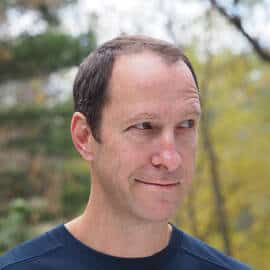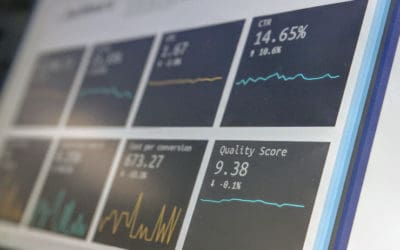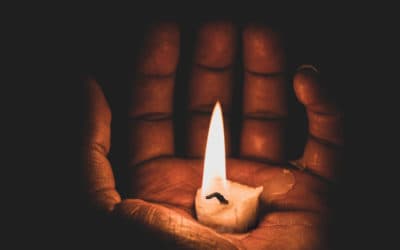Editor: I often talk about how one of the ways to start practicing medicine because you want to and not because you have to it by reaching financial independence. In today’s guest post, Physicians on FIRE explains how this idea also prepared them for the pandemic financially.
_____________________________________________________________________________________
In August of 2019, my family and I underwent a dramatic transformation in the way we were living.
I stopped going to work. We moved from Minnesota to Michigan into a much smaller home. Rather than return to school in the fall, our boys were homeschooled for the first time.
Since then, we’ve spent a lot more time together than ever before. We spent 2 months each in Mexico and Spain where we hardly knew anyone and didn’t understand much of the language. At least we had each other.
We thought we’d come home and resume a more social existence seeing family, getting together with neighbors, and making friends in our new community. Instead, we had to abide by a stay-at-home order for months. Well, at least we had each other.
How Early Retirement Prepared Us for the Pandemic
The Pandemic and the Economy
The pandemic caused by this novel coronavirus wreaked all kinds of havoc on both the global economy and the finances of individual households.
In three weeks, over 15 million people in the U.S. alone filed for unemployment. Stock markets dropped my more than 30% and inexplicably bounced about half of the way back in short order. The price of oil futures went negative, meaning someone actually got paid to take delivery of crude oil.
By now, I’ll bet you’ve heard the term “unprecedented” an unprecedented number of times. It’s a wacky, sad, scary, divided world, but people all over the world are answering the many calls of duty and there’s been no shortage of inspiring stories of ingenuity and solidarity.
I’m not one to make predictions, but it’s widely accepted and painfully obvious that this pandemic will have long-lasting effects on the global economy.
Production and consumption of goods and services dropped way down, and they haven’t come back fully as restrictions are gradually lifted. Earnings suffered, businesses shuttered, and jobs were lost. Some of the temporary changes in the way we work will be sticky; if you hate commuting and like working in your jammies, that may be a good thing.
If you had not achieved financial independence before 2020, your path has almost certainly been delayed. On the other hand, when you do reach your goals, it will likely be at a lower valuation in the stock market, and sequence of returns risk may be less of an issue than if you had retired in the last year or two.
Our Financial Preparation for the Pandemic
I wasn’t about to leave a lucrative career as an anesthesiologist without having a nearly bulletproof plan. That plan consists of two main components: oversaving and continued earnings.
Oversaving
To achieve a 97% success rate as an early retiree, based on past returns of U.S. stocks and bonds, one would need to save 25x anticipated annual spending for a 4% withdrawal rate. A more conservative approach would be saving 30x for a very low 3.33% initial withdrawal rate.
We were very conservative. When I left work, we had somewhere between 40x and 50x our anticipated annual spending saved up. And at the rate we’re spending money in the era of social distancing (i.e. not much), it’s going to be an even higher multiple.
When your withdrawal rate is in the 2% range, if all your investments do is keep up with inflation over the long haul, that money will last about 50 years. The odds are extraordinarily good that your balances will continue to grow over that time rather than be depleted.
Answer quick MicroSurveys for cash. Designed with convenience and timeliness in mind, 70% of surveys are answered on a mobile device in just a few minutes.
Physicians, Pharmacists, and other healthcare professionals are invited to join Incrowd today!
Continued Earnings
The other component to the plan that keeps us immune from sequence of returns risk (retirement failure due to terrible market returns) is an income stream.
The fact that I have this blog makes me a terrible test case for early retirement. I’ve made no bones about the fact that I do still work in some capacity — like writing this article — and that work leads to income. Retired not retired.
I donate a significant portion of those profits (and all of my profits in April, 2020 to COVID-19 relief), but the part that I keep covers our living expenses, so we have yet to begin our retirement drawdown plan. Financial Independence has allowed us to be much more generous with our income, and we now donate more money to charity than we spend on all other spending categories combined.
For years, I’ve heard the naysayers say that the FIRE movement would come to a screeching halt when the bull market ended. That’s one of the dumbest things I’ve ever heard.
How would a movement based on saving a substantial portion of what you earn and setting aside many years’ worth of expenses be exposed by a bear market or recession? Who’s in the best position to ride this thing out for as long as it takes? Those who are pursuing or have achieved financial independence. Obviously.
I’ve argued that a bear market cannot take away your financial independence. The safe withdrawal rate studies account for a nasty sequence of returns. Still, it might not be a bad idea to cut back on spending if the markets tank just before or after you retire. At the moment, it would be difficult not to spend less than projected, at least in the short term.
We’ve had some rough weather, so to speak, these last two months, and I’m not sure we’ve seen the worst of it yet. Regardless, I feel we’re in great condition to weather this economic storm. Preparing for an early retirement in a conservative way gives you a fantastic insurance policy against a potential catastrophe like this.
Our Lifestyle Preparation for the Pandemic
In the last six months, we’ve spent two months in Mexico, two months in Spain, and two months in the U.S., with much of that U.S. time in some form of lockdown.
A Typical Day in Mexico or Spain
Wake up after a full night’s sleep. Spend some time online while the kids do their schoolwork. Get some exercise with a jog through Chapultepec Park in Mexico City or Turia Gardens in Valencia.
In the afternoon, do some sightseeing as a family. Take in a museum or check out a market. Decide whether to have dinner out or in.
In the evening, do some reading, maybe some more computer time. After the kids’ nighttime routine, we might have time to have a cerveza or two, watch a show or a movie, or take an evening stroll.
A Typical Day in the U.S. on Lockdown
Wake up after a full night’s sleep. Spend some time online while the kids do their schoolwork. Get some exercise with a jog around the neighborhood.
In the afternoon, do some activity as a family. Get the bikes out, do some yardwork, or play a game of Monopoly. Decide whether to make dinner in or order dinner in (that’s actually predetermined several days in advance).
In the evening, do some reading, maybe some more computer time. A beer or two, Netflix and chill, etc…
Our location has changed and the sites are less exciting, without a doubt. But while talking heads on television speak of fear and panic, our day-to-day routine is the same as it ever was in this once in a lifetime event.
What is upending and unnerving in many homes is par for the course around here. Early retirement and slow travel have prepared us well. Things that are not at all abnormal for us that might be a stark change for others include:
- Being responsible for our children’s education (we’ve been homeschooling / worldschooling all along)
- Spending a whole lot of time around one another
- Having few social contacts outside of the home (other than by phone or online)
- Working from home (or not at all)
I realize that some of you are working outside the home more than ever and in some very stressful and even unsafe conditions. I am truly grateful for every essential worker making sacrifices and taking risks every day.
I offered my services to my old employer if needed, but they were less busy than normal as elective surgeries were placed on hold. I’m probably more useful behind the computer, anyway. A pledge to donate all of my April, 2020 profits resulted in $25,000 Donated to COVID-19 Relief.
I was honored to be a part of the mass-vaccination efforts, volunteering my time at 2 to 3 clinics a week when the vaccine first became available, and I continue to vaccinate anyone who is willing and able to make it to one of many walk-in clinics our local health department puts on.
Back to the point I was trying to make about. Retiring early from medicine and traveling together for weeks and months at a time made for a really easy transition to the COVID lockdown situation. The more things change, the more they stay the same.
While it was a challenging time for many, apparently, some people actually thrive in this sort of environment.
I don’t know that we werre thriving, but I tried to make good use of my time. I started a routine that includes learning a second language, exercising regularly, and enjoying the best entertainment that the streaming services have to offer. As of June, 2021, I’ve done 100 pushups and 100 situps a day for well over 400 days straight.
I look forward to continuing to add back the parts of our lives that were missing, one careful step at a time. In the meantime, I am grateful for the work of our front-line and essential workers who continue to face this waning pandemic head on.
I’m also grateful for financial independence and early retirement. They’ve prepared my family well for both the financial uncertainly and lifestyle challenges that the pandemic delivered.





Same here, life was perfectly normal. We didn’t even see much impact on seeing other people. We still ran three mornings a week with our fellow runners, unmasked. We still fished, hiked and off roaded with our side by side ATV with friends. We still played recreational tennis and our team tennis continued unabated. Still played pickle ball. My small amount of work continued, I didn’t travel as much doing most of the consulting remotely but it didn’t feel any different. Not having kids at home meant that we did not have to adjust to home or remote schooling. Nobody we knew died and none of our close friends got sicker than a mild case of the flu. We got vaccinated pretty early and now there are few if any mask requirements at all around here. But we rarely had to wear them anyway since our activities were generally socially distanced by nature. If I wasn’t retired then, yeah, life would have been much different. I’m glad it wasn’t for us.